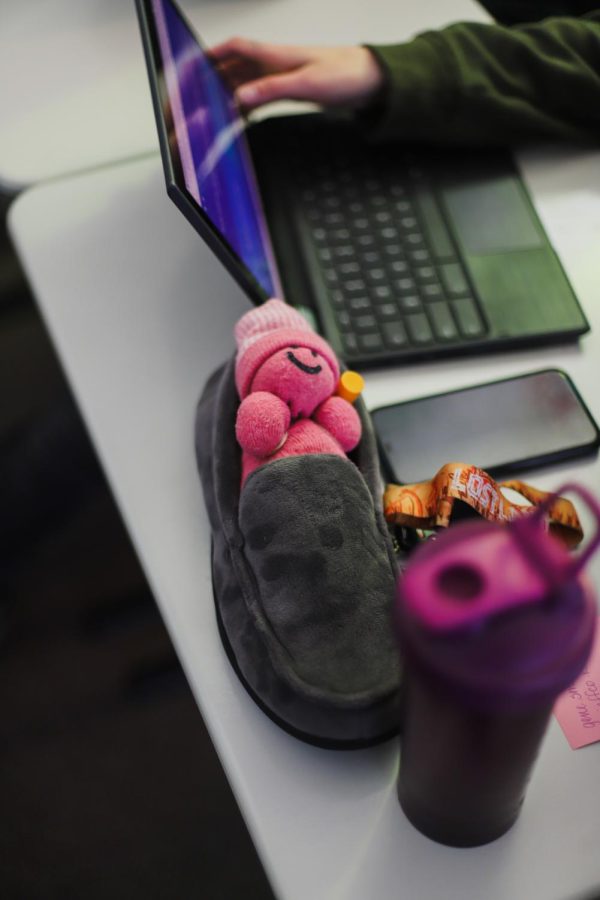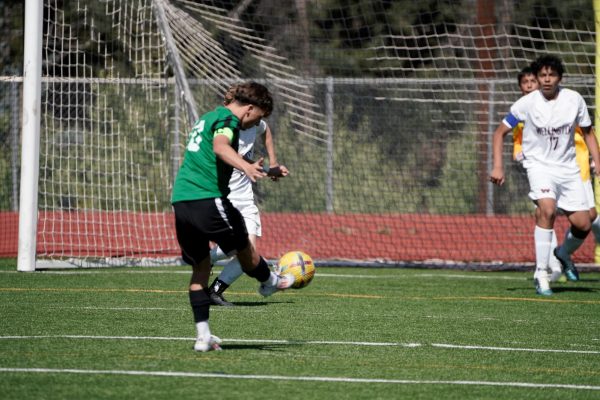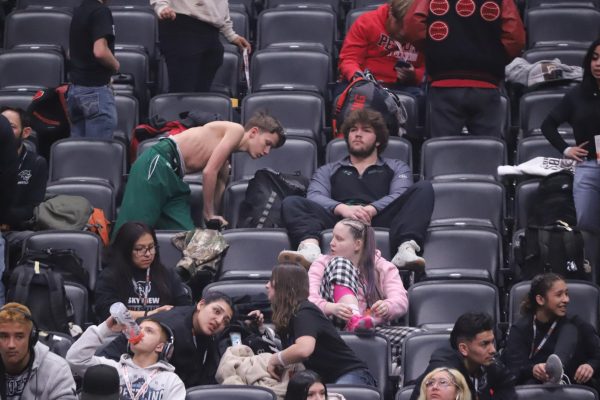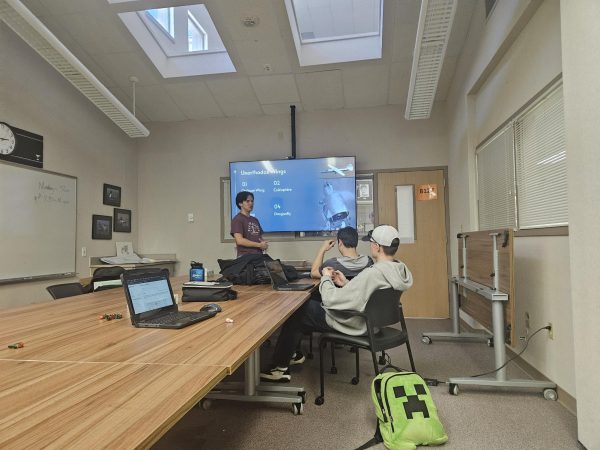Don’t Sock My Baby
AP Psychology students study developmental psychology with sock babies.
The term “sock baby” may lead to an array of things someone might picture. The sock babies were often pink (sometimes black) socks, filled with rice, with arms, legs and a head that made it look more like a real baby. Even though they resembled babies, socks go in shoes and, apparently, some students think sock babies do too.
In the past two weeks, the AP Psychology students have been carrying around sock babies in order to learn about developmental psychology (the study of how someone grows throughout their life).
These sock babies had to be treated as if they were real babies, which meant that they had to be constantly supervised and treated with care. They couldn’t be left in lockers, hit, dropped, abandoned etcetera. If a “parent” needed to leave the child, they had to leave them with a responsible babysitter. The AP Psychology teacher, Aaron Shepard, acted as Child Protective Services and other teachers were encouraged to report any abuse they saw. Any lost babies were also asked to be returned to his classroom.
In the first 2 days, two babies had already been turned into Shepard.
“Thankfully the baby’s parent … were frantically looking for the baby and were reunited within 30 minutes….Another baby broke their arm (and had to be taken) to the doctor, ” Shepard said.
If a student lost their baby or cases of abuse were reported Shepard and the student would have a “serious heart to heart” and the student would write about the incident in their assignment. If the student continuously lost or abused a child they could lose points or temporarily lose custody. Students would earn points by bringing in their babies everyday, writing about the project, and taking pictures of them in their different stages of “development.” While students were heavily encouraged to take good care of their babies, incidents like broken bones or lost babies weren’t uncommon.
“Sock baby’s still alive, had a couple of broken limbs but I think that’s pretty common at this point,” senior Roch Sparks said.
While students in the class already had to struggle with keeping track and taking good care of their babies, other students added to their struggle. Some students became babysitters while others kidnapped the babies and mistreated them. Some students reported that others would steal Psychology students’ babies and slam them against tables or mistreat them in other ways.
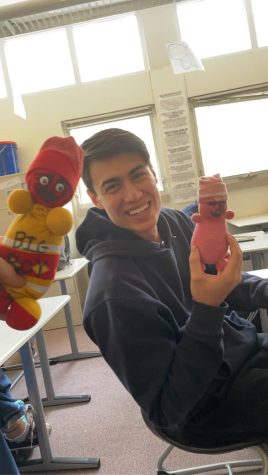
“Some of my friends didn’t understand the importance of the project so they were trying to take him and stuff, whereas, some of my friends really like kids so they were treating him kind of like an actual baby, so I had a lot of my friends who wanted to babysit during school,” senior Tara Casey said.
Due to the threat of kidnapping or losing their children, constant vigilance was necessary for these students, but they often ran into some difficulties when it came to this.
“It’s really hard to constantly be paying attention to two things at once. There have been a lot of times where I’ve been like ‘oh no, I have no clue where my baby just went.’ I’ll have a general idea and I’ll be able to find him pretty quickly but… I realize someone totally could have stolen him,” Sparks said.
The goal of this assignment was to learn about developmental psychology but the students also learned a lot about child care along the way.
“I enjoyed it a lot. I felt like it was a really good way to learn about developmental stages, as opposed to just reading a textbook,” Casey said.
